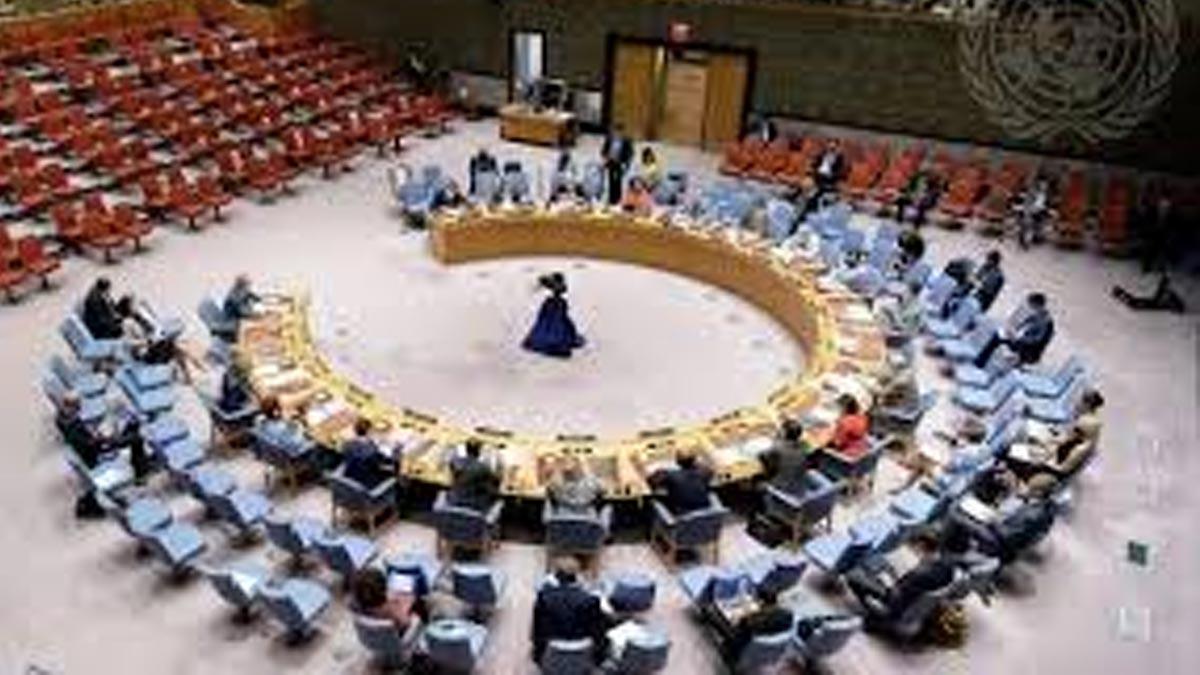The Greek UN Mission, which is currently sitting in the chair of the Security Council this month, reported that no request for the holding of a Security Council meeting on the situation between India and Pakistan has come in.
"Nothing has been requested since Monday's closed consultations," the Greek mission reported late Wednesday evening.
Neither Pakistan nor any of the other 14 members of the Security Council have called for a meeting.
When questioned whether Pakistan was calling for a UN Security Council session, Pakistan's Permanent Representative to the UN, Asim Iftikhar Ahmed, was evasive, replying, "We are watching the situation."
On Monday, the Council had held a closed-door consultation on South Asia, which included a briefing by Assistant Secretary-General Mohamed Khaled Khiari.
India objected to the Security Council's interference in what it considers a bilateral issue, drawing on the 1972 Simla Agreement between the two countries.
As much as there is a global consensus calling for de-escalation, the chance to hold a Security Council meeting at this point is not likely to produce any meaningful outcome. Any resolution would call for unanimity of the permanent members, which currently cannot be realized.
Earlier, on May 6, the United Nations Security Council (UNSC) asked Pakistan to explain raising very serious questions about the terror attack in Pahalgam, Jammu and Kashmir. The attack was carried out at a time of increased tension between India and Pakistan and took the lives of 26 people.
During the closed meeting, the members of the Council condemned Pakistan and inquired regarding the involvement of the Pakistan-based militant organization Lashkar-e-Taiba in the Pahalgam attack. While the meeting had held that it largely achieved its goal, reports indicated that the meeting had little tangible impact.
The meeting was convened at the request of Pakistan, and Asim Iftikhar Ahmed insisted that Pakistan had nothing to do with the attack. The closed-door meeting did not produce official reports, but members of UNSC called for restraint and dialogue to solve the problem.
Following the meeting, UNSC President Evangelos Sekeris told reporters, "The Security Council is always helpful in such efforts" to ease tensions. He further stated that the meeting had been "productive and helpful," but indicated that, since the consultation was closed, its proceedings would remain confidential.
UN Secretary-General Antonio Guterres was alarmed at the situation and referred to it as being at a "boiling point." He urged India and Pakistan to "step back from the brink" and warned that "a military confrontation could easily get out of hand.".
Guterres denounced in the strongest possible terms the Pahalgam terror attack which killed 25 Indian nationals and a Nepalese citizen. He empathized with the "raw feelings" evoked by the gruesome attack. The lethal attack was owned up by the Resistance Front (TRF), which traces its origins with Lashkar-e-Taiba.
Read also| EU Affirms Nations' Right to Protect Citizens Amid Rising India-Pakistan Tensions


















